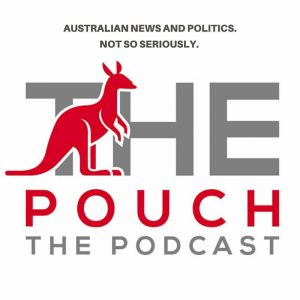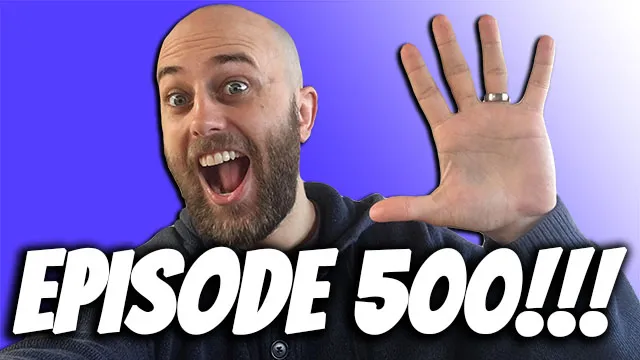Transcript of AE 688 - Aussie Politics: Gerrymandering
G'day you mob and welcome to this episode of the series that I'm doing with Jake Farr-Wharton and Gregg Savage from The Pouch The Podcast on political expressions. So today we're going to explain for you a political expression that is used in Australian English all the time. Don't forget to go and check out their podcast The Pouch if you want to learn about all things Australian politics. So, guys, I hope you enjoy this informal, fun discussion. Three guys getting together, having a bit of a laugh whilst talking about Aussie politics and also trying to teach you some Australian English at the same time. All right, guys, so tap the Currawong and let's get into it.
Gerrymander.
Oh I love gerrymandering.
Go for it.
Yeah, I really like him too. Gregg, do you want to take this one?
Well, I mean, I don't know if I can give the good definition. I just know that on our podcast, when we brought up gerrymandering, I was like, it just sounds like old dirty underwear, doesn't it?
I love it.
Where does Jerry keep his mandarin?
Well, I'm not sure, but he should certainly clean it.
So I think you might need to field this one again, Jake, because... I don't know, I'll mess it. But, yeah, you go ahead.
So we have these things called electorates, essentially. And electorates are... They're geographic boundaries, but they are meant to be balanced on essentially a certain number of people. If it's a state like Western Australia, it's normally about 100,000 to 150,000, plus or minus about 20,000, I think it is. And what happens is over time, you know, people might move and a lot of people might move. And as a consequence, you know, that 150,000 people electorate might be whittled down to, you know, 40,000 people. And that then means that you don't have enough people in that electorate to, you know, appropriately elected an official.
So you have a committee called a 'Independent Redistribution Committee' and they redraw the electoral boundaries to ensure that we do have an adequate distribution of population around geographic areas. Now, what gerrymandering is, is essentially... And it doesn't happen too often, it has happened in the past in Australia, but it's very well known to happen in the US.
The most recent election.
Exactly. And in some other countries as well. And, you know, that's what happens when you have one political party that is severely partisan and wants to keep themselves in power. What essentially gerrymandering is, is when you game the system to increase the number of people in a particular electorate that are more likely to vote for you. So what that means is in some ways, or actually a great example is where you organise for a bunch of really wealthy suburbs to be included in your electorate and that's how we get a... What do we call it again? A blue something seat?
A blue ribbon seat.
A blue ribbon seat. That's how you get a blue ribbon seat. Well, that's one way to get a blue ribbon seat anyway.
Clever.
Is when you essentially game the system to increase the number of people who are more likely to vote for you in an electorate.
But it's not an easy thing to do...
Talk at the best time! Talk at the same time!
It's not an easy thing to do. It's not like it's not, "Oh, I'm going to go out and do some gerrymandering." It's challenged and there are sort of... What do you call it? Like 'stops and balances'? Checks and balances along the way to make sure that it doesn't actually happen. People don't want it to happen, but it does. It doesn't happen so much in Australia as I think in the United States.
Does it happen with other things, too? Not necessarily as Jake explained, but where you, say, set up the days or the times or the places where people can vote in order to attract a certain crowd or, you know, make a certain crowd that's going to vote against you not turn out... Especially in America where voting is optional.
Yeah, I mean, I'd use America as an example where that does happen, where it's sort of... What is it? The first Monday of the first week in November, I believe it is. It's something like that. And there are only certain people that can get off work in order to vote on a Monday. And also, when you consider that November is freaking cold across many of the states in America, then you further dilute the number of people who can travel. And then when they decrease the number of places where you can actually go to vote, it decreases further.
So, yes, that is an example of gerrymandering in practice. In Australia, thankfully... Thankfully, in Australia, not only do we vote on a Saturday or Sunday normally, we have, you know, postal voting, early voting. You know, you can vote for weeks prior to an election at certain electoral centres. So, yeah, we're pretty equitable in terms of being able to access your right and, you know, requirement to vote.
Thanks for joining me today, guys. I hope you enjoyed this episode. I hope you learnt a little something new. And I hope that you improved your listening comprehension, as I know that sometimes it's difficult to listen to three native speakers all talking over the top of each other about a certain topic in conversation, but that's the whole point of this sort of series. It's to give you exposure to advanced English discussions, chats, everything like that, so that you can work on your listening comprehension whilst also learning about Australia, Australian politics and some English vocab about politics. Don't forget to go and check out Jake and Gregg's podcast, The Pouch. You can find this via any good podcast application for free. They publish an episode every weekend about Australian politics. Anyway, until next time, guys, I hope you have a killer week and I'll see you soon.













Responses